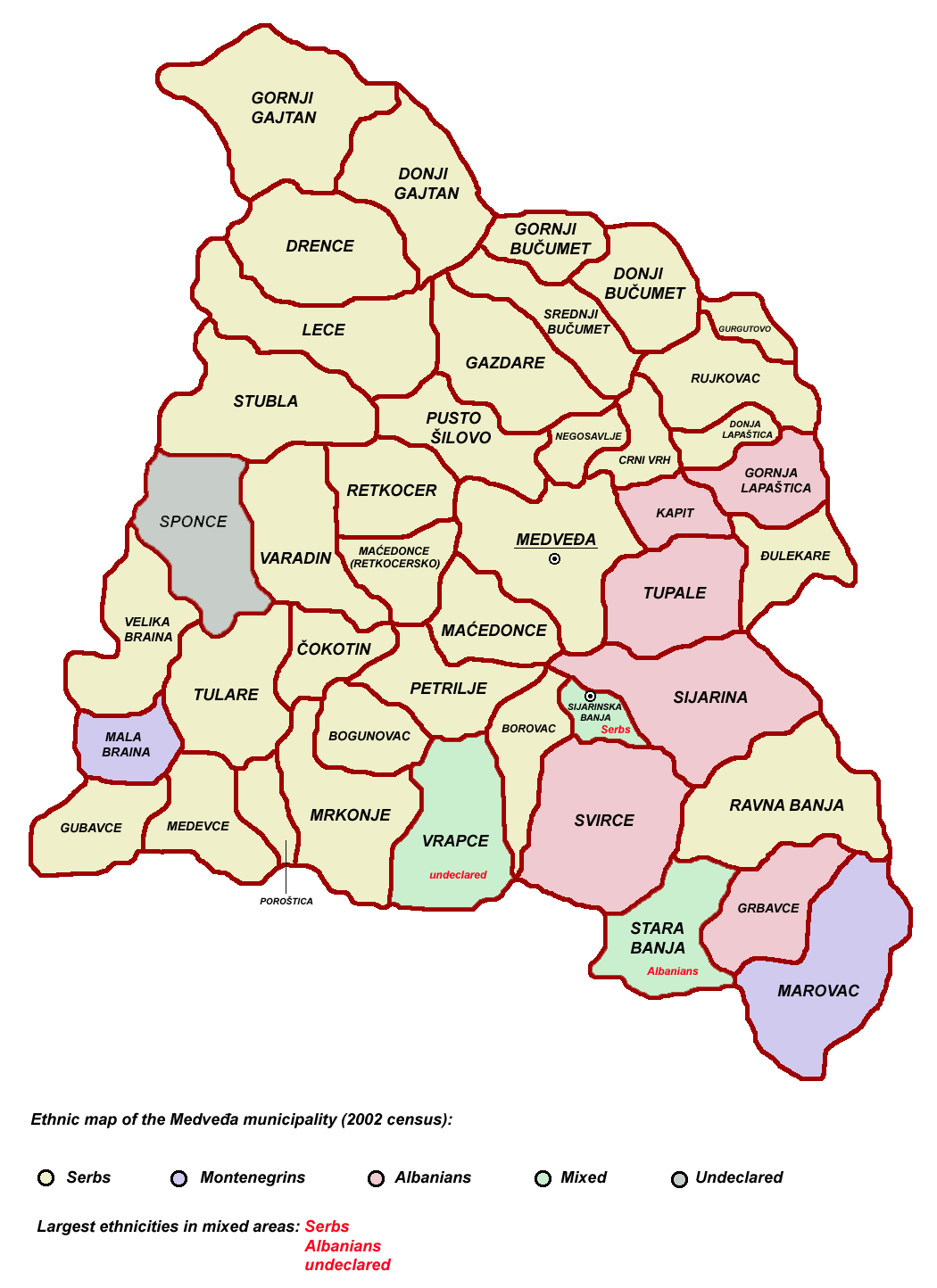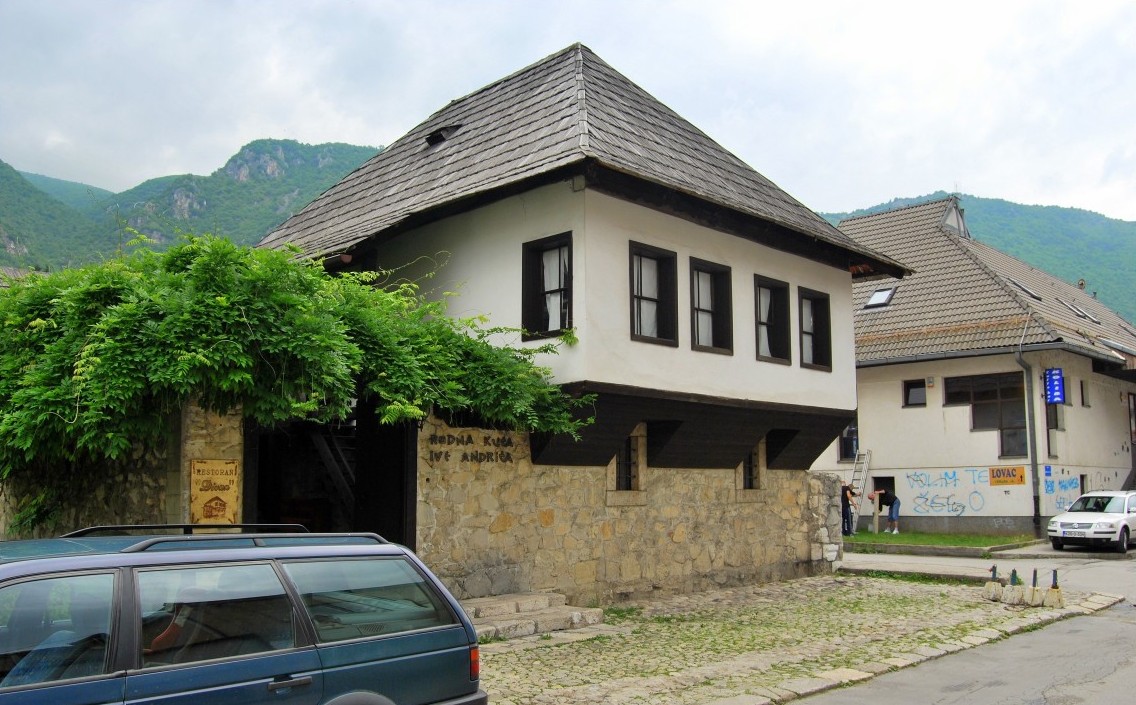|
Milivoje Pavlović
Milivoje Pavlović (Serbian Cyrillic: Миливоје Павловић; Medveđa, 1947) is an awarded Serbian writer and university professor, as well as literature, culture and media scholar. Biography He studied Serbian language and Yugoslav literature at the Faculty of Philology in Belgrade. He has MA and PhD in Literature Studies. From 1987 to 1991 he was the director of Serbian Cultural and Educational Community (Kulturno-prosvetna zajednica Srbije). From 1991 to 1994 he was elected twice for the Republic Information Minister. From the end of 1994 to February 2001 he was the director of Radio Belgrade. From 1998 worked as a university lecturer – first at the Art Academy in Belgrade, and afterwards on the Faculty of Business Studies and the Faculty of Culture and Media. Currently he is a professor and the Dean of the Faculty of Culture and Media and the Pro-rector of the University "Megatrend" in Belgrade. His works are in national and foreign literary and multimed ... [...More Info...] [...Related Items...] OR: [Wikipedia] [Google] [Baidu] |
Medveđa
Medveđa ( sr-cyr, Медвеђа, ; sq, Medvegja, ) is a town and municipality located in the Jablanica District of southern Serbia. According to the 2011 census, the town has a population of 2,848 inhabitants, while the municipality has 7,438 inhabitants. Etymology The name is derived from the Serbian word ''medved'' (медвед), "bear", hence meaning "the place of the bears". History During the Roman period, there was a town (''mansia'') with the name Idimum located in the cadastral area of the modern town. Architectural debris dating to the 4th century AD lay at various locations of the town, as it was a transitory zone of Upper Moesia; travel and postal stations are among the finds. Toponyms such as ''Arbanaška'' and ''Đjake'' shows an Albanian presence in the Toplica and Southern Morava regions (located north-east of contemporary Kosovo) before the expulsion of Albanians during 1877–1878 period. The rural parts of Jablanica valley and adjoining semi-mountainous ... [...More Info...] [...Related Items...] OR: [Wikipedia] [Google] [Baidu] |
Association Of Writers Of Serbia
The Association of Writers of Serbia ( Serbian: Удружење књижевника Србије, ''Udruženje književnika Srbije'') is Serbia's official writing association. Its current president is Milovan Vitezović. History The association was founded on 26 May 1905. Its founders and first members were Aleksandar Belić, Borivoje Popović, Dobrosav Ružić, Dragomir Janković, Dragoljub Pavlović, Dragutin Ilić, Živojin Dačić, Jovan Skerlić, Lujo Vojnović, Ljubomir Jovanović, Milan Milićević, Milovan Glišić, Milorad Mitrović, Milorad Pavlović-Krpa, Nikola Vulić, Pavle Popović, Petar Odavić, Radoje Domanović, Rista Odavić, Simo Matavulj (as president) and Stanoje Stanojević.Milovan Bogavac, Association of Serbian Writers 1905-1945, UKS history Post-WWII Association was re-established after the liberation of Belgrade on the meeting which took place on 31 December 1944. Notable signatories to the initiative included Isidora Sekulić, Ivo Andrić, ... [...More Info...] [...Related Items...] OR: [Wikipedia] [Google] [Baidu] |
Government Ministers Of Serbia
A government is the system or group of people governing an organized community, generally a state. In the case of its broad associative definition, government normally consists of legislature, executive, and judiciary. Government is a means by which organizational policies are enforced, as well as a mechanism for determining policy. In many countries, the government has a kind of constitution, a statement of its governing principles and philosophy. While all types of organizations have governance, the term ''government'' is often used more specifically to refer to the approximately 200 independent national governments and subsidiary organizations. The major types of political systems in the modern era are democracies, monarchies, and authoritarian and totalitarian regimes. Historically prevalent forms of government include monarchy, aristocracy, timocracy, oligarchy, democracy, theocracy, and tyranny. These forms are not always mutually exclusive, and mixed governme ... [...More Info...] [...Related Items...] OR: [Wikipedia] [Google] [Baidu] |
Serbian Journalists
Serbian may refer to: * someone or something related to Serbia, a country in Southeastern Europe * someone or something related to the Serbs, a South Slavic people * Serbian language * Serbian names See also * * * Old Serbian (other) * Serbians * Serbia (other) * Names of the Serbs and Serbia Names of the Serbs and Serbia are terms and other designations referring to general terminology and nomenclature on the Serbs ( sr, Срби, Srbi, ) and Serbia ( sr, Србија/Srbija, ). Throughout history, various endonyms and exonyms have bee ... {{Disambiguation Language and nationality disambiguation pages ... [...More Info...] [...Related Items...] OR: [Wikipedia] [Google] [Baidu] |
Serbian Scientists
Serbian may refer to: * someone or something related to Serbia, a country in Southeastern Europe * someone or something related to the Serbs, a South Slavic people * Serbian language * Serbian names See also * * * Old Serbian (other) * Serbians * Serbia (other) * Names of the Serbs and Serbia Names of the Serbs and Serbia are terms and other designations referring to general terminology and nomenclature on the Serbs ( sr, Срби, Srbi, ) and Serbia ( sr, Србија/Srbija, ). Throughout history, various endonyms and exonyms have bee ... {{Disambiguation Language and nationality disambiguation pages ... [...More Info...] [...Related Items...] OR: [Wikipedia] [Google] [Baidu] |
Literary Critics Of Serbian
Literature is any collection of written work, but it is also used more narrowly for writings specifically considered to be an art form, especially prose fiction, drama, and poetry. In recent centuries, the definition has expanded to include oral literature, much of which has been transcribed. Literature is a method of recording, preserving, and transmitting knowledge and entertainment, and can also have a social, psychological, spiritual, or political role. Literature, as an art form, can also include works in various non-fiction genres, such as biography, diaries, memoir, letters, and the essay. Within its broad definition, literature includes non-fictional books, articles or other printed information on a particular subject.''OED'' Etymologically, the term derives from Latin ''literatura/litteratura'' "learning, a writing, grammar," originally "writing formed with letters," from ''litera/littera'' "letter". In spite of this, the term has also been applied to spoken or sun ... [...More Info...] [...Related Items...] OR: [Wikipedia] [Google] [Baidu] |
Serbian Literary Theorists
Serbian may refer to: * someone or something related to Serbia, a country in Southeastern Europe * someone or something related to the Serbs, a South Slavic people * Serbian language * Serbian names See also * * * Old Serbian (other) * Serbians * Serbia (other) * Names of the Serbs and Serbia Names of the Serbs and Serbia are terms and other designations referring to general terminology and nomenclature on the Serbs ( sr, Срби, Srbi, ) and Serbia ( sr, Србија/Srbija, ). Throughout history, various endonyms and exonyms have bee ... {{Disambiguation Language and nationality disambiguation pages ... [...More Info...] [...Related Items...] OR: [Wikipedia] [Google] [Baidu] |
Serbian Literary Critics
Serbian may refer to: * someone or something related to Serbia, a country in Southeastern Europe * someone or something related to the Serbs, a South Slavic people * Serbian language * Serbian names See also * * * Old Serbian (other) * Serbians * Serbia (other) * Names of the Serbs and Serbia Names of the Serbs and Serbia are terms and other designations referring to general terminology and nomenclature on the Serbs ( sr, Срби, Srbi, ) and Serbia ( sr, Србија/Srbija, ). Throughout history, various endonyms and exonyms have bee ... {{Disambiguation Language and nationality disambiguation pages ... [...More Info...] [...Related Items...] OR: [Wikipedia] [Google] [Baidu] |
Serbian Literary Historians
Serbian may refer to: * someone or something related to Serbia, a country in Southeastern Europe * someone or something related to the Serbs, a South Slavic people * Serbian language * Serbian names See also * * * Old Serbian (other) * Serbians * Serbia (other) * Names of the Serbs and Serbia Names of the Serbs and Serbia are terms and other designations referring to general terminology and nomenclature on the Serbs ( sr, Срби, Srbi, ) and Serbia ( sr, Србија/Srbija, ). Throughout history, various endonyms and exonyms have bee ... {{Disambiguation Language and nationality disambiguation pages ... [...More Info...] [...Related Items...] OR: [Wikipedia] [Google] [Baidu] |
People From Medveđa
A person ( : people) is a being that has certain capacities or attributes such as reason, morality, consciousness or self-consciousness, and being a part of a culturally established form of social relations such as kinship, ownership of property, or legal responsibility. The defining features of personhood and, consequently, what makes a person count as a person, differ widely among cultures and contexts. In addition to the question of personhood, of what makes a being count as a person to begin with, there are further questions about personal identity and self: both about what makes any particular person that particular person instead of another, and about what makes a person at one time the same person as they were or will be at another time despite any intervening changes. The plural form "people" is often used to refer to an entire nation or ethnic group (as in "a people"), and this was the original meaning of the word; it subsequently acquired its use as a plural form of ... [...More Info...] [...Related Items...] OR: [Wikipedia] [Google] [Baidu] |
Ivo Andrić
Ivo Andrić ( sr-Cyrl, Иво Андрић, ; born Ivan Andrić; 9 October 1892 – 13 March 1975) was a Yugoslav novelist, poet and short story writer who won the Nobel Prize in Literature in 1961. His writings dealt mainly with life in his native Bosnia under Ottoman rule. Born in Travnik in Austria-Hungary, modern-day Bosnia and Herzegovina, Andrić attended high school in Sarajevo, where he became an active member of several South Slav national youth organizations. Following the assassination of Archduke Franz Ferdinand in June 1914, Andrić was arrested and imprisoned by the Austro-Hungarian police, who suspected his involvement in the plot. As the authorities were unable to build a strong case against him, he spent much of the war under house arrest, only being released following a general amnesty for such cases in July 1917. After the war, he studied South Slavic history and literature at universities in Zagreb and Graz, eventually attaining his PhD. in Graz in 1924 ... [...More Info...] [...Related Items...] OR: [Wikipedia] [Google] [Baidu] |


_1938.jpg)
